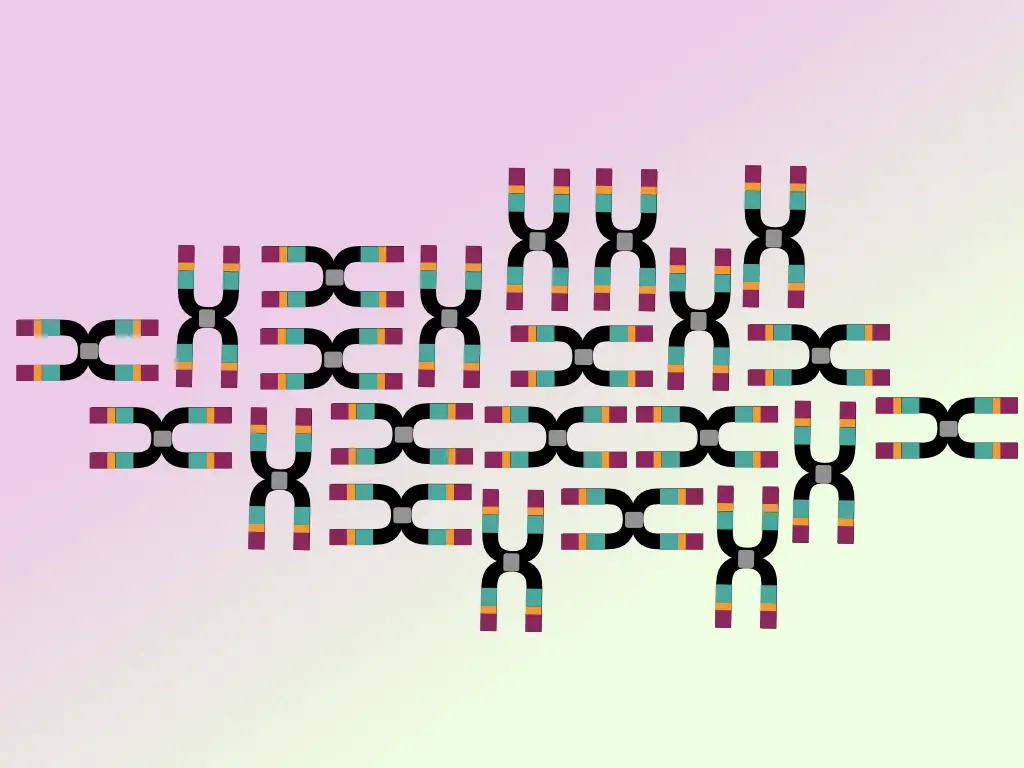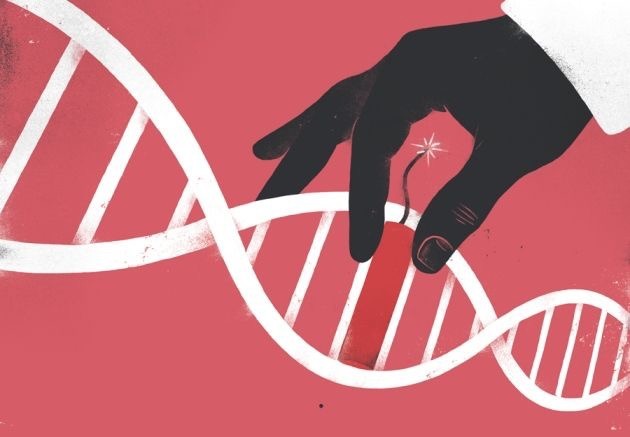“Nuclease-free water is an ultrapure DNase and RNase-free water used in nucleic acid extraction and PCR reaction preparation.”
Nucleic acid extraction/ separation is a process to collect or isolate DNA or RNA from a cell or tissue. Physical, chemical and enzymatic treatments make it more effective. There are tons of protocols and commercial kits available in the market for nucleic acid extraction.
But the basic principle practically remains the same. Cell wall/ membrane and nuclear membrane disruption, removal of protein and other cell debris and precipitation separate pure DNA or RNA. Noteworthy, animal or plant tissue needs prior tissue homogenization for better separation. As the purity of extracted nucleic acid is a major concern in downstream processing every step has equal importance.
The yield of the extract is further as crucial as the purity. The presence of DNase or RNase greatly reduces the yield of DNA or RNA, respectively by degradation. Thus their removal is empirical. The chemicals of nucleic acid extraction can effectively inactivate the nuclease, but it should remain inactive even after.
The aggressive use of nuclease-free water in extraction, PCR and other relevant processes makes nuclease inactive and therefore it is important to understand the role of molecular grade- DNase or RNase-free water in nucleic acid separation and downstream processing. In the present article, I will explain what nuclease-free water is and its function.
Stay tuned.
Key Topics:
What is nuclease-free water?
Nuclease-free water is a molecular grade ultra-pure, DNase, RNase and/or proteinase-free, sterile water used in nucleic acid elution, dilution and PCR reaction preparation. Here are some of the properties of nuclease-free water.
Properties:
- pH- 5.5 to 6.5
- Temperature- 22 to 37°C
- Ultrapure
- Sterile and autoclaved
- DNase, RNase or protease-free
- PCR grade
- Free of visible precipitate
- Contamination-free
- Free from fluorescence particles
- Free from metal or other ions
- Visibly clear and odorless
Other names: RNase-free water, DNase-free water, molecular grade water and PCR grade water.
Functions of nuclease-free water:
Ideally, all the molecular procedures in which nucleic acid- DNA or RNA is involved, use only certified nuclease-free water. It is applied to dissolve DNA or RNA, dilute nucleic acid further, PCR reaction preparation, nucleic acid storage and other molecular experiments.
The most important function is to protect the nucleic acid from degradation by nucleases either DNase or RNase and that’s why the name nuclease-free water is given. Each function is particularly explained here.
Prevent from DNase or RNase:
DNase and RNase are two types of nuclease enzymes that cleave the DNA and RNA, respectively. The enzyme binds to the phosphate backbone of the nucleic acid, performs catalytic action by the enzyme-active site and degrades respective nucleic acid. The consequences of degradation lead to fragment DNA or RNA and consequence in reduced yield.
RNase has a prominent presence in nature and our surroundings and makes the separation process even more difficult, particularly for RNA extraction. All utilities and chemicals allowed in RNA extraction should be RNase-free.
We can use DEPC-treated water (which is nuclease-free) for chemical preparation, washing and treating utilities and dissolving RNA. Although DNase is less prevalent than RNase, still it’s recommended to use nuclease-free water during DNA isolation.
Note:
Separately purchase nuclease-free water for dissolving RNA or preparing the reverse-transcriptase reaction, use DEPC-treated water only to wash utilities, clean glass and plastic wares and prepare chemicals.
Dissolve and dilution of nucleic acid:
DNA can frequently be dissolved in nuclease-free water. Depending upon the precipitate obtained, an adequate volume of water should be added to the DNA. However, we can dissolve RNA as well but is ideally not recommended as it can’t prevent the stability and integrity of the RNA.
In addition, Nuclease-free water dilutes highly concentrated DNA or RNA. We can adjust the concentration of nucleic acid as per our requirement by adding the appropriate amount of molecular-grade water.
Technical note:
Note that if you have dissolved DNA in nuclease-free water, perform dilution using the same water only, if you have dissolved DNA using TE buffer, use the same TE buffer for dilution.
PCR reaction preparation:
One crucial ingredient of PCR reaction is nuclease-free water without which a reaction doesn’t complete and we can’t get good results. Besides, protecting the template from DNase in a reaction, it provides volume to the reaction, balances the reaction, and supplies a constant liquid medium for every ingredient to work properly during the reaction (for PCR reaction).
Storing nucleic acid:
Molecular-grade water is a powerful DNA dissolving and storing reagent. For a short period of time (for a few months) DNA can be dissolved and stored at -20°C temperature in water. However, in the longer run, the water starts evaporating and changes the properties of dissolved DNA.
For RNA, though it can dissolve RNA as well, a ready-made elution buffer with RNA stabilizers is advisable. RNA can be stored in nuclease-free water.
In addition, nuclease-free water is applied in restriction digestion, cDNA or genomic DNA preparation, probe and primer revival, DNA sequencing, microarray and gene cloning.
How to prepare nuclease-free water?
From my side, it is recommended to use commercially available nuclease-free water. Ready-to-use products are crystal clear, certified nuclease-free & molecular grade and ultra-pure. But we can prepare it. I have a protocol but sharing it with you, just for knowledge.
To 1000ml d/w add 0.1% DEPC, allow it to react at room temperature, autoclave it, store it in a nuclease-free bottle and use it.
Note that the commercially available molecular grade water is prepared by ultrafiltration, not by chemical treatment thus, is more trusted. Ultrafiltration removes DNase and RNase effectively.
Related read: Category: DNA extraction
Recommendation to use it:
- The nuclease-free water should be of molecular grade.
- It comes in ‘directly to use’ form, do not dilute it.
- Store it in a certified nuclease-free tube or bottle (if required).
- Store in a cool, at 4°C.
- Do not use it if it shows debris, crystals or precipitates.
- Do not use it if the color or pH changes. It is advisable to check pH periodically with a pH paper.
- Do not heat it.
- Measure its activity at 260 and 280 nm spectroscopically, periodically to assess nucleic acid contamination.
- Do not autoclave it.
Now claver students may have a question,
What are the differences between normal water, distilled water, and nuclease-free water?
Firstly, the normal tap water or lab water has contaminants, minerals, fluorescent materials, and live cells (bacterial/viral). It should have ‘precipitates’, and other visible debris and its pH isn’t suitable for DNA or RNA.
Contrary, distilled water and nuclease-free water have totally different properties.
The supremacy of nuclease-free water is DNase and RNase-free, whilst the distilled water isn’t nuclease-free. D/w is prepared by boiling the normal water while the nuclease-free is prepared by chemical or physical treatment.
Nuclease-free water doesn’t have free ions, fluorescence particles or impurities while the distilled water may have such things.
Nuclease-free water is a molecular grade certified product applied in genetic and molecular genetic experiments, on the other hand, the distilled water is not molecular grade and can be used in normal lab preparations only.
Wrapping up:
The ultimate goal of nucleic acid extraction is to get a pure and high-yield product. Contaminated DNA fails PCR, sequencing and other assays whereas contaminated RNA results in an abrupt gene expression profile.
So the purity and yield of the final extract should be assessed by using various techniques before sending it for amplification or hybridization. Nuclease-free water is a crucial ingredient much like the others. It inactivates any nuclease present and protects our precious nucleic acid from degradation.
This article helps students to understand why we use such different processed water in molecular biology. I hope this article will help you. Let me know in the comment.

